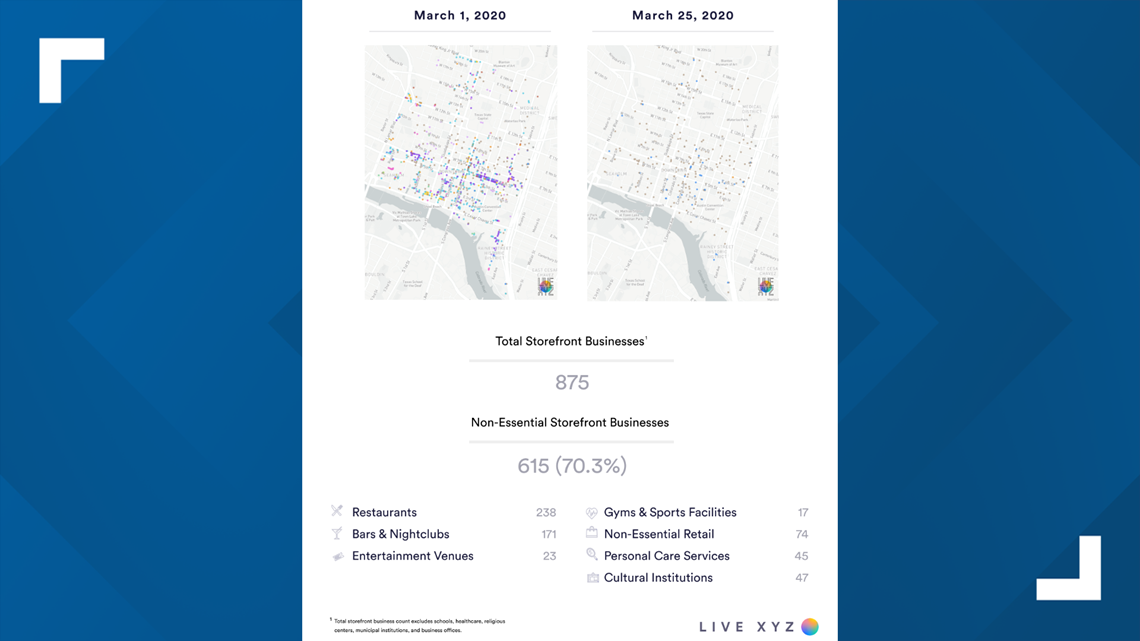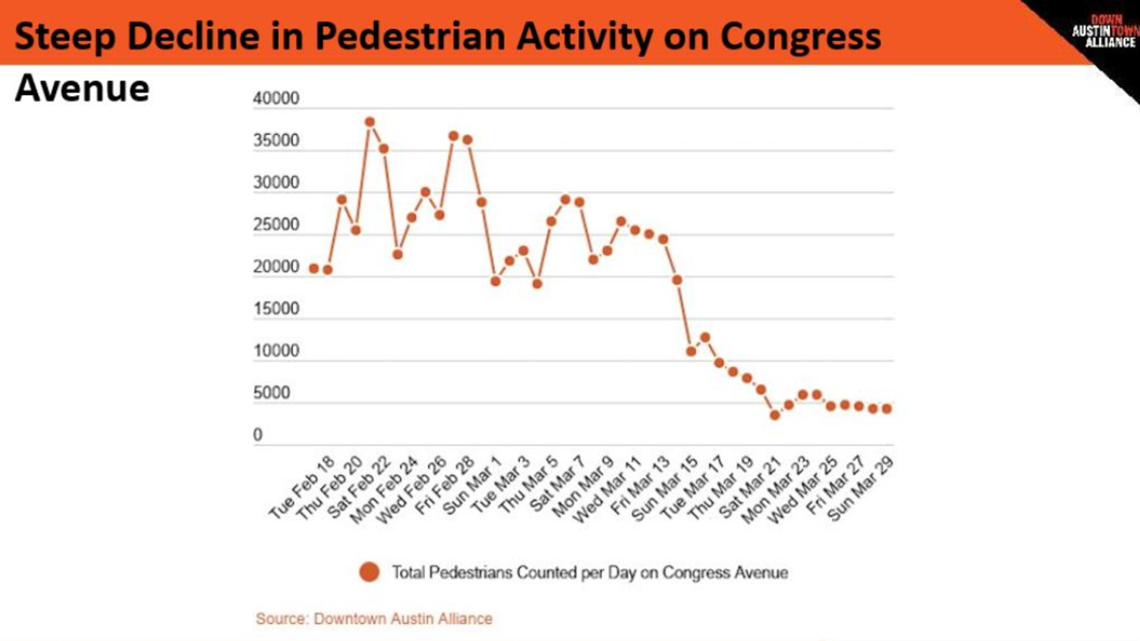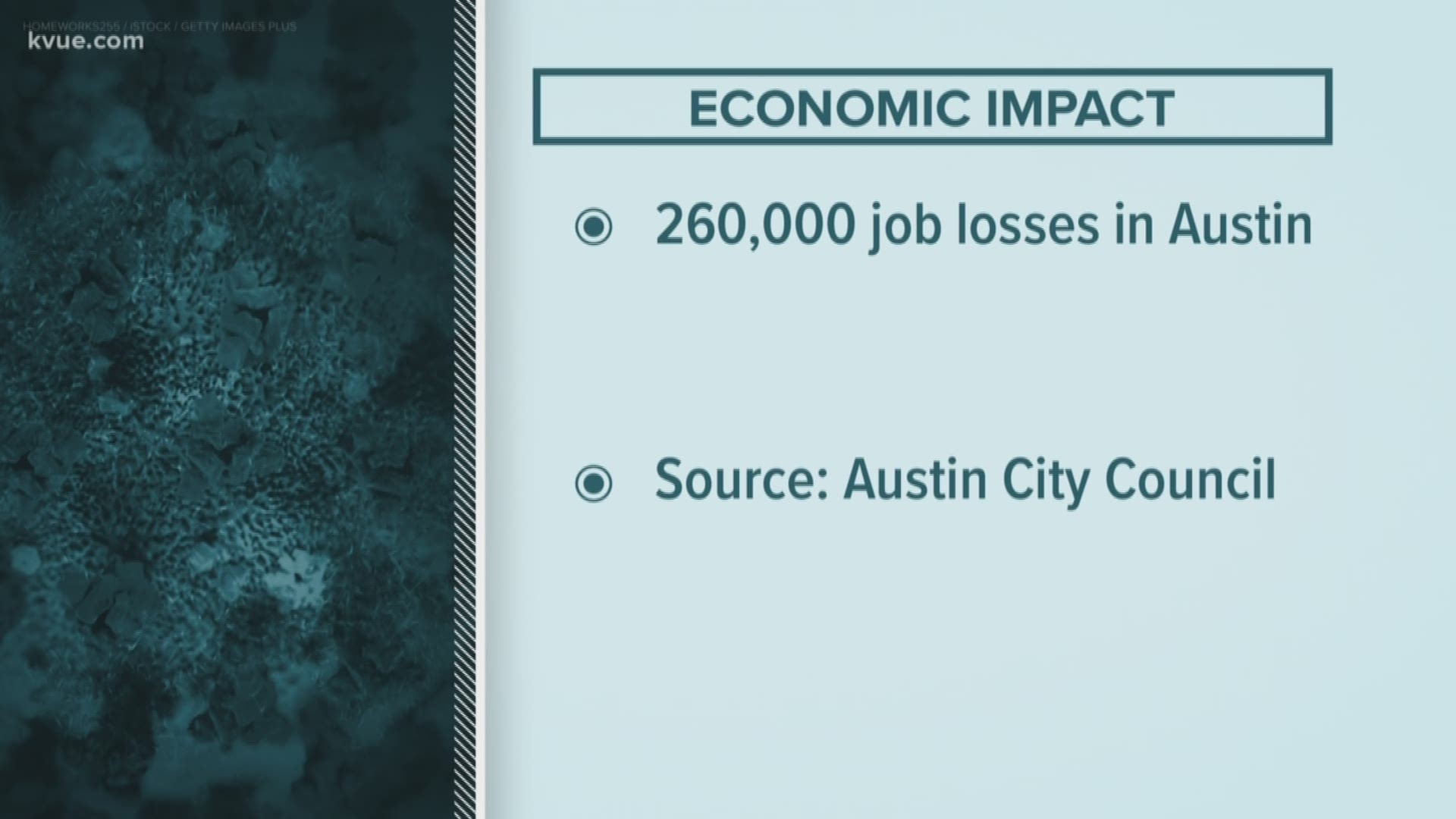AUSTIN, Texas — With businesses closing, it's easy to see the impact of the coronavirus has had on them.
New data from the Downtown Austin Alliance (DAA) gives a clearer picture on what businesses are being affected and why.
"I just want to emphasize this is not doom or gloom, it's just the reality," said DAA CEO Dewitt Peart. "I think we have to expect that a percentage of the businesses that are now boarded up may never come back."
The DAA subscribes to a software that basically shows the organization the digital signals (websites, emails, etc.) from all the businesses. It's a way for the DAA to monitor business activity.


Data shows that of the 875 businesses downtown, 615, or about 70%, are non-essential storefront businesses, like restaurants, bars or gyms.
Peart said, in March, the digital signal activity decreased by about 80%.
"Which means the digital signals coming out of the storefronts in downtown have gone completely silent, which means they're not doing any business," Peart explained.
Peart added, of the signals the DAA received, 100% of the non-essential businesses are impacted in some way.


The DAA is also tracking pedestrian traffic.
The graph shows that on Congress Avenue, between late February and the end of March, pedestrian traffic decreased by 89%.
"If you're watching Congress Avenue, that probably doesn't surprise you, but those numbers are astounding," said Peart. "And for retail businesses and certainly those non-essential businesses, pedestrian traffic is their lifeblood."
Peart said in order to help downtown businesses, the City needs to figure out how to bring people back to downtown and tourists back to Austin.
"How do we bring the pedestrian traffic back to downtown? How do we bring downtown back to life?"
Peart said that's a question the DAA is working to answer.
The Downtown Austin Alliance is working on a game plan, which includes an immediate response, a recovery plan and a resiliency plan. The DAA will send out a survey to the businesses.
"We want to hear directly from the businesses, how they're doing, what they're experiencing, and what help might need in surviving this near-term impact," said Peart.
Peart also encouraged businesses to apply for support. Details on how to do so can be found here.
PEOPLE ARE ALSO READING:

